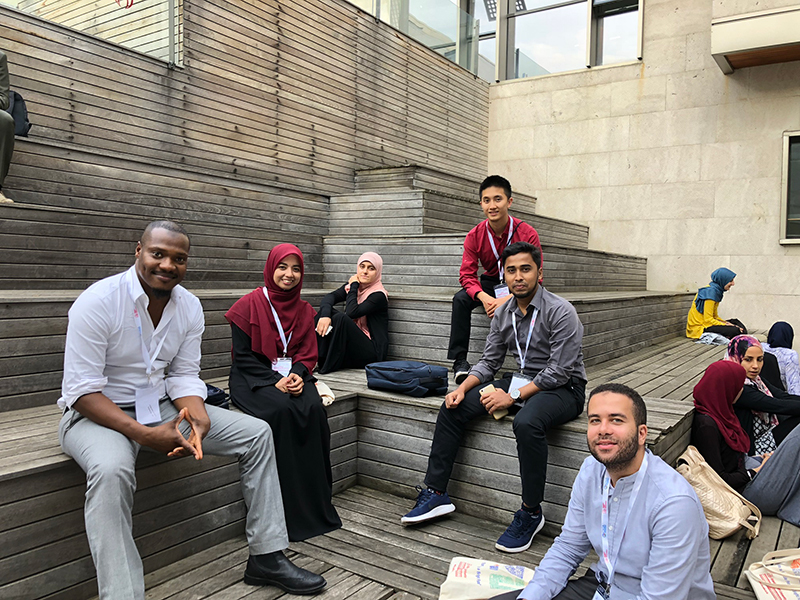
Leveraging Hamad Bin Khalifa University’s (HBKU) growing collaborative agreements in the field of education, six students and three faculty members from the College of Islamic Studies (CIS) embarked on a number of academic development opportunities at Turkey’s Istanbul Sabahattin Zaim University (IZU) this summer. The educational opportunities at the Turkish institute came against the backdrop of its recent partnership with HBKU, which was signed during the past academic year of 2017-18 to further cooperation in the field of graduate education.
The facilitation of a global interchange of knowledge and resources stems from HBKU’s founding pillars – Excellence, People, Innovation and Partners – that guide the University’s steady efforts in seeking out new international partners for the provision of inclusive, high-quality learning opportunities in Qatar and abroad.
Co-sponsored CIGA Summer School Program Fosters Exchange of Views on Social, Religious, and Political Topics
As such, a delegation of six CIS students, led by Assistant Professor and Assistant Dean for Innovation and Community Advancement at CIS, Dr. Mohamed Evren Tok; Professor of Public Policy in Islam, Dr. Louay Safi; and Assistant Professor of Methodology and Ethics, Dr. Mu'taz Alkhatib joined their international peers at the Center for Islam and Global Affairs (CIGA) Summer School Program that was held at IZU from 25 July to 5 August.
The two universities share an agreement that supports the exchange of students, in particular those specializing in the fields of Islamic sciences, economics and finance. Resultantly, during this year’s program, participating students engaged in an interchange of ideas and values on a wide range of academic topics, including spiritual growth, intellectual development and public activism.
“The CIGA Summer School Leadership Development Program extensively explored the evolution of the sociopolitical environment in which Muslim communities in the West have found themselves since the turn of the century. To this end, the two-week program studied their multifold challenges, particularly in light of the surge of religious profiling and threats of marginalization, and focused on the larger political, civic and social life lessons that could be drawn from the communities’ experiences based on four main classifications: spiritual growth, intellectual development, political education, and public activism. Ultimately, the program aimed to inculcate critical thinking and leadership skills as well as a strategic understanding of the complex issues affecting Muslims in the participants, so that they may effectively influence and lead their respective communities to a promising future.
“We look forward to building on this cooperation with IZU in future and welcoming our Turkish colleagues to HBKU in order to expand our shared range of graduate capacity-building,” Dr. Tok said.
Commenting on the summer program’s successful completion, Ardela Hyka, who is currently pursuing a Master of Arts In Islamic Studies degree in the Islamic Civilization and Societies concentration, said: "Experiencing the CIGA Summer School within a wholly new cultural and educational environment taught me a lot about cultivating personal leadership qualities, particularly with a view towards one's background and individual abilities. Witnessing some of Istanbul's magnificent sites underlined this further as we found ourselves in a world metropolis that carries a rich history of political and religious leadership.
“Coupled with some of the practical components of the summer school, including group projects and dynamic discussions on topics related to Islam, Modernity and Community Development, these experiences gave me a deeper understanding of this critical subject matter to carry forward in my studies at CIS."
As established partner institutes, the Turkish university welcomed the keen participation of HBKU’s delegation, whose joint vetted academic expertise in the fields of contemporary Islamic studies provided a rich contribution to academic discourse. This growing foundation of interactive knowledge transfer further consolidates HBKU’s global profile of academic excellence and extramural growth.





